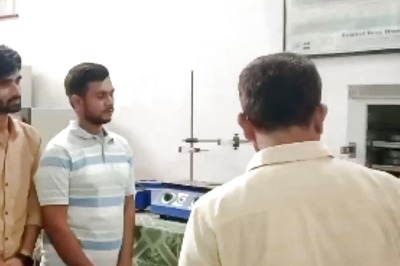
views
The tax is levied on your income if it is above a certain limit as per the tax slabs. The Income Tax department can take action against the person if they skip the submission of the required Income Tax. The department does not only monitor your income but also your transactions. It also includes money deposited from your savings accounts for each day and year. RBI has put a limit on the deposit amount. You can deposit Rs 10 lakh in your savings account within a year without facing any problems from the Income Tax Department.
If you cross this limit, the bank immediately informs the Income Tax Department. You may get a notice from the department. You don’t need to have to pay tax on this. You will be inquired regarding the money’s source.
If an account holder is unable to tell where the money came from, the Income Tax Department can recover it from the account holder by imposing a 60 per cent tax, 25 per cent surcharge and 4 per cent cess on that amount. Let us tell you that the Income Tax Department sets a limit not only for a year but also for transactions in a single day. You cannot do a cash transaction of more than Rs 2 lakh daily. Cash transactions do not only mean withdrawing money from the account. It includes cash withdrawals as well as account-to-account transfers or making payments to someone. Therefore, the one-day cash transaction limit of any bank is kept at less than Rs 2 lakh.
Rules For Cash Deposit
There is no need for a PAN card for depositing up to Rs 50,000 in the bank.
If you deposit more than Rs 50,000, you have to provide your PAN card.
If Rs 2 lakh or more is deposited in your savings account in a day, then a penalty of 100 per cent can be imposed under section 269ST of the Income Tax Act. In aggregate from a person in a day; In respect of a single transaction; or. In respect of transactions relating to one event or occasion from a person.
The maximum amount you can deposit in your savings account in a year is Rs 10 lakh.




















Comments
0 comment